2022 Regions in Recovery Festival Partners and Supporters
After the success of our Global E-Festival Regions in Recovery in 2021, we are again working with partners to bring you this event. We will provide you with a research-led celebration of regions and how these can be re-imagined in times of challenge including Covid-19, climate change and geo-political turmoil. We will bring together researchers and communities from across the world enabling you to network and share your research in regional studies and science.
Regions in Recovery Second Edition 2022 will take place from 21st March – 1st April 2022.
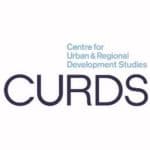
CURDS is based in the School of Geography, Politics and Sociology at Newcastle University.
Its aims are to produce academically rigorous and policy relevant research on the theoretical, empirical and policy dimensions of urban and regional development in an international context.
Since its establishment in 1977, CURDS has generated over £35 million of research income from: national research councils; public and private bodies; international organisations; and UK national, local and regional government and institutions
CURDS research is anchored in economic geography, extending into the overlapping spheres of spatial analysis and modelling, demography, housing, and planning. CURDS has a long-standing interest in patterns of social and spatial inequality with a particular focus on the development of peripheral regions.
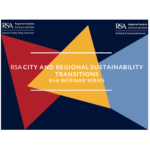
Convenors: Will Eadson (Sheffield Hallam University), Camilla Chlebna (University of Oldenburg) and Laura Norris (Cardiff University)
Policy aimed towards sustainability transitions is beginning to have fundamental effects on how economic activity is organised across cities and regions. Growing calls in the wake of Covid-19 for a ‘green recovery’ heighten the possibilities for radical transformation of economies, albeit with a wide range of potential pathways, from radical degrowth to revamped low carbon capitalism. These changes are prompting reflection from scholars across the field of regional studies and economic geography. How might we better understand the different impacts (and possibilities) of a sustainable (or ‘green’) economy?
This seminar series will invite leading scholars from across these fields and from a range of career stages to present cutting edge theoretical and empirical work. Through stimulating discussion and debate about ways forward for understanding economic geographies of sustainability transitions, policy and academic communities can be brought together. The webinar series is run by the RSA’s Yorkshire and Humberside Branch and supported by the RSA. It is free and open to all and runs monthly during semester times.

CORAL- ITN is a Marie Sklodowska Curie Innovative Training Network (2021-2024). Its aim is to unpack the latent dynamics and impacts of collaborative workspaces in rural and peripheral areas and integrate them as development tools in local and regional policies to open up new potentials for socio-economic development. The project envisages providing specialized and tailor-made training to 15 young researchers to better understand and support the development processes of collaborative workspaces in rural and peripheral areas in the EU, their wider impacts at the local and the regional level, as well as at the level of the individual worker and the enterprise.

Founded in 1992, the European Association of Development Agencies (EURADA) gathers professionals working on economic development across Europe. EURADA represents development agencies before the European Union institutions.
The association facilitates the cooperation among regional economic development practitioners. They can network, plan common EU projects, cooperate, advocate, and participate at European level. EURADA serves as international well-established facility to connect development agencies with each other, with Europe, and with the opportunities Europe has to offer.
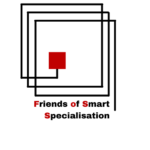
The Friends of Smart Specialisation (FoSS) is a group of independent innovation policy experts, set up in Brussels in 2018. The group’s goal is to support the mainstreaming of smart specialisation as an instrument for strengthening the multi-level European innovation system.
Smart Specialisation can play a coordinating role in European policy development in aligning innovation and transformation policies at different levels (regional, national, European). Smart Specialisation can, in particular, support the development of a common reference framework for aligning forces to tackle common challenges and opportunities. The group have produced a mission statement that gives an overview of the group’s thinking on smart specialisation.
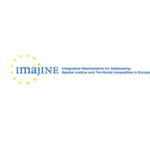
IMAJINE (Integrated Mechanisms for addressing Spatial Justice and Territorial Inequalities in Europe) is a Horizon 2020-funded project that commenced in 2017. It involves 15 partners over 13 countries. The purpose of the research is to examine the dynamics behind regional inequalities in Europe and to propose new policy approaches for tackling inequality and for promoting a more equitable distribution of resources. The IMAJINE project draws particularly on ideas of spatial justice to examine territorial inequality as a spatial phenomenon, invoking normative, qualitative ideas of justice and fairness. The IMAJINE research is focused on the following strands: a) critique of current academic and policy understandings of EU territorial cohesion and solidarity; b) review of and new approaches to spatial disaggregation of socio-economic data at local levels; c) exploration of dynamics of territorial inequalities and economic growth; d) citizen survey on solidarity and territorial cohesion; e) the dynamics of migration and links to territorial inequalities and spatial justice; e) the role of multi-level governance in mitigating against territorial inequalities; f) the claims of regionalist movements for political autonomy; g) the development of scenarios on possible European regional futures featuring various forms of territorial inequality and spatial injustice as a means to inform policy design.
LDnet is an informal network set up in 2011 to bring together knowledge and people in local development across rural, coastal and urban areas in Europe and beyond.
People wishing to make a contribution to local development can participate in the network, registering as contributors to the LDnet website, participating in LDnet activities and joining the LEDA-LDnet Association.
LDnet fields of activity
LDnet provides a forum for sharing information and knowledge among experts, researchers and all those active in local development. Its activities cover both the theory and practice of local development. In this way it acts as an independent ‘think tank’ whose work can inform stakeholders and contribute to policy development and implementation, and generally benefit all those involved in local development in Europe and beyond. Opening up the network to a mass membership of practitioners is a long-term ambition.
LDnet at work
Network contributors have the opportunity to work together in open or closed groups to raise the level of debate, research and understanding of local development. The network is mainly web-based and virtual. An annual event and smaller round-table meetings are also held.
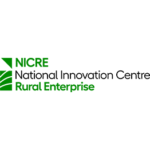
The National Innovation Centre for Rural Enterprise (NICRE) collaborates, researches and co-designs ideas and solutions to foster rural enterprise and unlock the potential in the UK’s rural economies.
It is a unique hub of innovation, research excellence, knowledge exchange and impact focusing on:
- Undertaking and commissioning new research to fill gaps in current knowledge of rural enterprise and innovation
- Developing practical solutions with businesses, rural communities and economic development agencies
- Providing evidence to inform better policy and support for rural businesses
NICRE works with a variety of stakeholders to take part in research and catalyse change to build stronger, more resilient rural communities and enterprise.
It brings together the strengths of its founding university partners: Centre for Rural Economy and Business School at Newcastle University, Enterprise Research Centre at Warwick University and Countryside and Community Research Institute at the University of Gloucestershire and Royal Agricultural University.
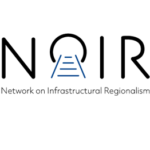
The RSA Research Network on Infrastructural Regionalisms (NOIR) engages research at the intersection of infrastructure and regional studies. By placing the region at the center of the ‘infrastructural turn’, the Network reflects both the increased conceptual, geographic, and political importance of infrastructure and the endemic crises of access (social space), expertise (technology), and resources (governance) that varied provision of infrastructures within regions can cause. NOIR offers multiple forums to debate the terrains of regional infrastructure, develop collaborative research projects, and facilitate meaningful dialogue between academics and practitioners.
Infrastructural regionalisms will focus on those infrastructures that have relevance beyond the local. Analyzing regions through infrastructure provides a novel perspective on the regional question as investment and disinvestment in infrastructure reveals vital discursive and material elements that produce, structure, and modify metropolitan regions worldwide. The development of infrastructural assets – ranging from transport and telecommunications to energy and sanitation – as part of regional policies raises fundamental questions about how the funding, governance, and spatiality of such infrastructure can promote urban, economic, and ecological sustainability at the regional scale. NOIR brings infrastructure to the forefront of innovative, interdisciplinary, and multi-scalar research on metropolitan regions to determine how regions are constructed, territorialized, governed, and experienced.

Planners for Climate Action is a global collaboration to promote the value and contribution of better planning to sustainable cities facing the impacts of climate change. Comprised of associations of planning practitioners and planning educators, collectively representing tens of thousands of planners worldwide, as well as other partners active in this area, P4CA was launched at the 23rd Conference of Parties (COP-23) to the UN Framework Convention on Climate Change (UNFCCC), in Bonn, November 2017.
The Regional Studies Association is a learned society concerned with the analysis of regions and regional issues. Through our international membership we provide an authoritative voice of, and network for, academics, students, practitioners, policy makers.
In today’s globalised, knowledge-driven and networked world, regions and cities have assumed heightened significance as the interconnected nodes of economic, social and cultural production, and as sites of new modes of economic governance and policy experimentation. This book series brings together incisive and critically engaged international and interdisciplinary research on this resurgence of regions and cities, and should be of interest to geographers, economists, sociologists, political scientists and cultural scholars, as well as to policy-makers involved in regional and urban development.
Click here for a flyer with a special discount code for #RinR22 participants (discount valid until 31.12.2022).
If you would like to discuss a potential new book for the series, please contact: Joan Fitzgerald (jo.fitzgerald@northeastern.edu) – Series Editor-in-Chief, or Kristina Abbotts (kristina.abbotts@tandf.co.uk) – Routledge Commissioning Editor
The Regions and Cities book series welcomes Open Access projects. Please contact Kristina Abbotts or visit https://www.routledge.com/info/open_access for more details.
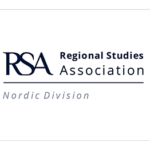
NORSA was formally established at a meeting in Umeå, Sweden, in September 2008.
NORSA is a non-political, voluntary, self-governing organisation with non-profit objectives andshares the aims and objects of the Regional Studies Association, which are:
(a) to promote education in the field of regional studies (those studies which relate to the economic, physical and sociological problems of development in major areas) by the exchange of ideas and information.
(b) to stimulate and aid studies and research into regional planning, development and functions and to disseminate the results of such research.
Aim
a) promote knowledge about regional and local development and governance;
b) initiate and support studies and research on development and functioning of regional and local structures;
c) act for the promotion of regional sciences among all subjects participating in social, political and economic life;
d) establish international cooperation in theoretical and practical approaches to regional development; and,
e) cooperate with various institutions, organisations and associations with similar goals and objectives.
NORSA carries out its objectives through the following means:
a) conducting events such as seminars, conferences, courses, discussions etc.
b) participation of its members in seminars and conferences held locally, nationally and internationally;
c) promotion of its activities to the mass media and through its own publications and web presence;
d) cooperating with authorities, institutions and organisations interested in activities run by NORSA.
NORSA’s ambition is to organise biannual Nordic conferences. The working language at the conferences will be English, since we hope to attract participants also from other parts of Europe and the world with an interest of regional issues in the Nordic context.
Background
The idea of a Nordic Division of RSA was conceived by the four Nordic country reps in 2005, and a first conference of what was then called the Nordic Network of RSA was held in Balestrand, Norway in 2006. At this conference there was agreed to organise a second conference in Umeå 2008. Christine Hudson at Umeå University became the organising chair of this conference, while the Nordic country representatives (Markku Sotarauta, Finland, Henrik Halkier, Denmark, Peter de Souza, Sweden and Oddbjørn Bukve, Norway) took the role as a temporary board with Peter de Souza as chair. The board later supplemented itself with Margareta Dahlström from Nordregio. These were also elected to the first ordinary board of NORSA during the Umeå meeting. By electing country reps to the board of NORSA, we hope to develop NORSA in close co-operation with the RSA.
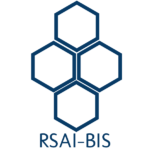
The British and Irish Section of the Regional Science Association International was founded in 1968 and it forms part of the Regional Science Association International (founded in 1954). The British and Irish section is one of the 18 European sections of RSAI that fall under the European Regional Science Association (RSAI also comprises a North American Regional Science Council and a Pacific Regional Science Organisation). Its membership is drawn, in the main, from academics, consultants and scientists in local and national government, who share an interest in spatial issues.
As with all the RSAI sections (national and regional associations), the British and Irish Section seeks to promote the study of regional and urban phenomena and the advancement of regional science. Regional Science is a multi-disciplinary field, with a strong foundation in quantitative methods, encompassing expertise in economics as well as geography, planning, mathematics and sociology. With the development of the interest in spatial issues across a range of fields (economic geography, spatial economics, regional studies, urban economics, spatial econometrics, etc) as well as in policy (see, for example, at the European level the European Spatial Development Perspective), regional science has become at the centre of the development of theory and method in urban and regional analysis and policy.